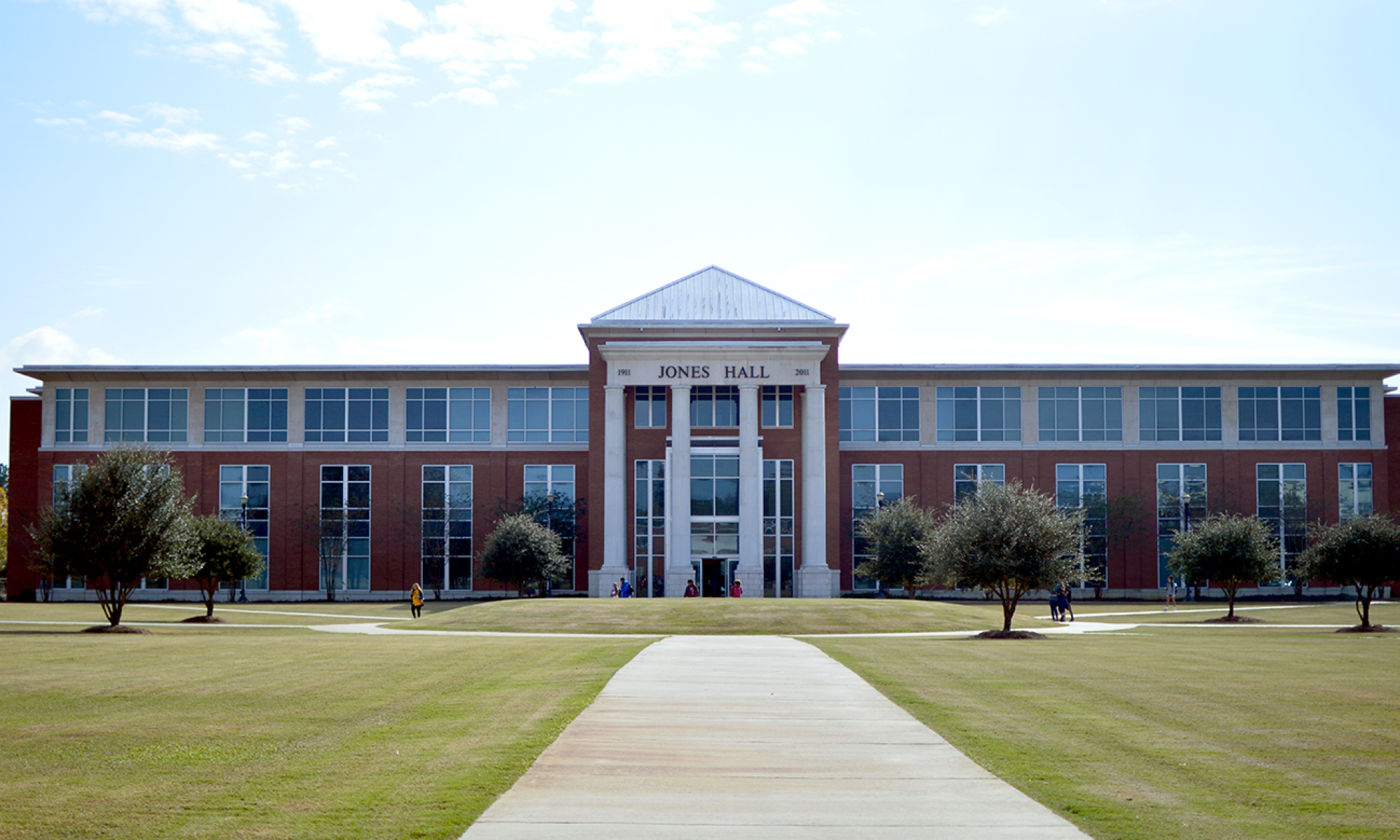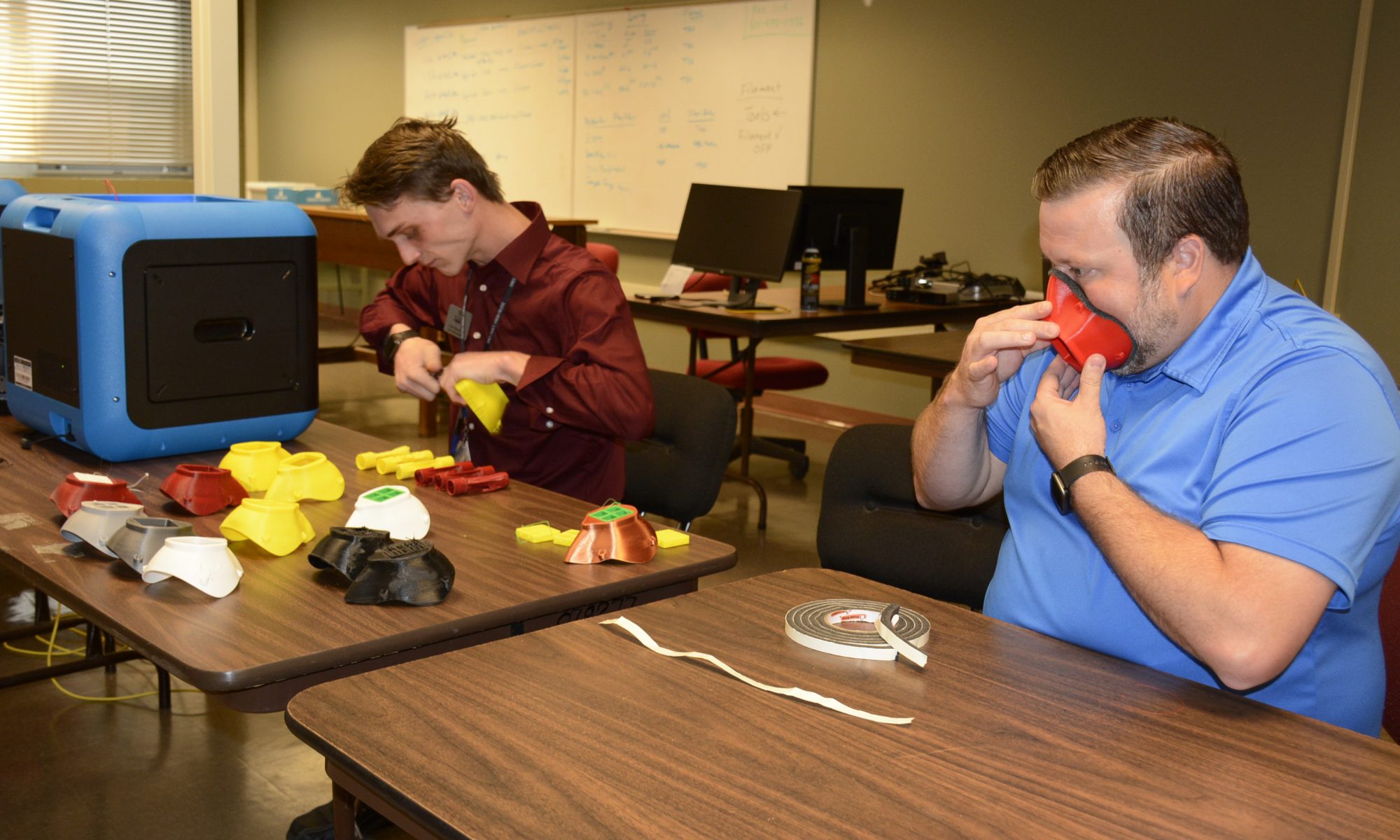ELLISVILLE- A unique combination of resources and skills has sparked a collaborative effort amongst three Jones College faculty to help the healthcare providers on the “front line” fight the invisible war with the Corona Virus. Electro-Mechanical Technology instructor, Cody Robertson, CAD Engineering Technology instructor, Karen Kirk and EMT-Paramedic instructor and Health Services Division Chair, Benji Sessums have combined their skills and resources with the efforts of others across the world who are taking 3D printers and creating personal protective equipment for healthcare workers.
“People all over the country are realizing they can make these supplies,” said Robertson. “We can’t do it at the speed or as efficiently as a regular manufacturer, but when you crowdsource that kind of manufacturability you can make a significant impact.”
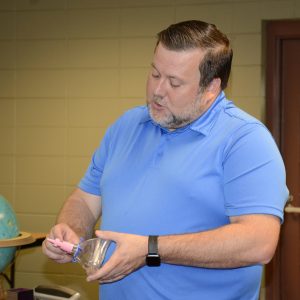 The prototypes the JC team developed is a compilation of files already tested by developers in Billings, Montana, and from others across the U.S. After consulting with local healthcare providers, Robertson and Kirk tweaked and modified their design by adding an adhesive type sealant around the edges of the mask. Other options are also being explored include modifying CPAP masks and designing a face shield to protect the eyes.
The prototypes the JC team developed is a compilation of files already tested by developers in Billings, Montana, and from others across the U.S. After consulting with local healthcare providers, Robertson and Kirk tweaked and modified their design by adding an adhesive type sealant around the edges of the mask. Other options are also being explored include modifying CPAP masks and designing a face shield to protect the eyes.
“The real question we faced was 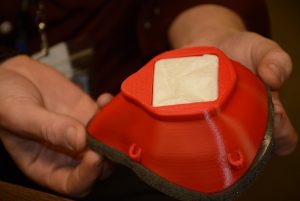 what type of filter material should be used. We have lots of options because we’ve been experimenting and testing different filters to go into the plastic masks,” said Sessums. “We’ve taken the current masks everyone uses and cut it into squares to make it last longer. We also tested the use of surgical drapes, which has a higher-grade filtration than the N95 filtered masks”
what type of filter material should be used. We have lots of options because we’ve been experimenting and testing different filters to go into the plastic masks,” said Sessums. “We’ve taken the current masks everyone uses and cut it into squares to make it last longer. We also tested the use of surgical drapes, which has a higher-grade filtration than the N95 filtered masks”
Using the 12, 3D printers in Kirk’s lab, Robertson estimates they can produce at least 30 masks with removable filters each day. Plastic bands and the sealant would be added around the edges, once any fringe materials are removed. Using the 3D printers also allow Kirk and Robertson the option to easily adjust the size of the mask. Most importantly, Robertson said the JC developed masks are better than the CDC’s minimum standard which is a bandana.
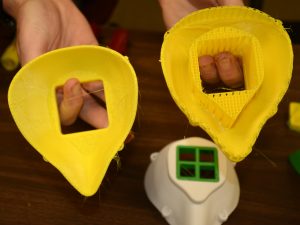 “I don’t want my friends and family members working around the Virus to have to rely upon just a bandana. What we are making is not replacing the mask, but we’re offering a better option for emergencies,” said Robertson, who feels indebted to healthcare providers after surviving pancreatic cancer.
“I don’t want my friends and family members working around the Virus to have to rely upon just a bandana. What we are making is not replacing the mask, but we’re offering a better option for emergencies,” said Robertson, who feels indebted to healthcare providers after surviving pancreatic cancer.
“Jones College not only has the capability to provide something better than the minimum, but we also pride ourselves on giving back to our community. Our healthcare providers are on the frontlines of a war that could very well reach our doors, and I, along with many others, have a duty to help them.”
The three faculty members report their creation is reusable, utilizing much less filter material, which can prolong the effectiveness of the plastic masks from a financial and safety aspect in comparison to the previously stated CDC minimum.
“Most of the area hospitals and service providers are being proactive and are not in a critical supply need today,” said Sessums. “However, in four or five weeks from now, when supplies are decreasing, they are developing plans now for when they reach that point, to protect their employees. We are ready to answer their calls.”
For the Jones College students who are learning from home, Kirk said she has 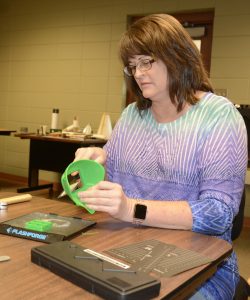 plans to work this “lesson” into the student’s curriculum.
plans to work this “lesson” into the student’s curriculum.
“I’m going to demonstrate to students what we’ve been doing, talk about the design process and show them a video of the mask printing on the 3D printer. We’ll also discuss other ways the 3D printers can be utilized. Hopefully, this situation will encourage them to think outside the box and discover other productive ways to use the 3D printers to help society,” said Kirk.
The production of the 3D masks at Jones has the potential to save lives and prevent the spread of the Corona Virus as the demand for personal protection increases.
